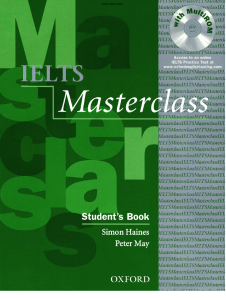سوالات اسپیکینگ درباره موضوع رسانه ها (پاسخ نمره 9)
IELTS Speaking Questions with Answers about Media
در اینجا بیش از 20 سمپل اسپیکینگ آیلتس نمره 9 از جدیدترین سوالات گزارش شده از سنترهای ایرانی و خارجی مربوط به پارت 1، 2 و 3 با موضوع “رسانه ها” را برای شما فهرست کرده ایم. در ادامه همچنین نکات گرامری، لغات و دلایل دریافت نمره 9 را توضیح داده ایم. در ادامه 1000 نمونه سوالات اسپیکینگ آیلتس با جواب PDF پارت 1 2 3 پیشنهاد بعدی ما به شما عزیزان است.
سوالات اسپیکینگ آیلتس موضوع رسانه ها (پارت 1)
Do you often watch the news? Yes, I watch the news daily to stay informed about current events. It’s essential to know what’s happening globally, especially in terms of politics and world affairs. I usually prefer watching online news sources because they offer more flexibility and variety. I also enjoy reading news articles for more detailed analysis, rather than just listening to headlines.
What type of media do you usually use? I primarily use digital media, such as websites, social media platforms, and news apps. The convenience of accessing information instantly is a major advantage. I also occasionally watch TV for more in-depth coverage of events. However, I feel that online sources are more interactive and offer a broader range of perspectives, which is why I prefer them.
How do you think media affects society? Media plays a crucial role in shaping public opinion and societal norms. It informs people about important issues, but it can also perpetuate biases or misinformation. While media has the power to unite people by spreading awareness, it also has the potential to divide by emphasizing differences. Overall, the media significantly influences how we view the world and interact with each other.
Do you think social media is beneficial or harmful? Social media has both positive and negative aspects. On the one hand, it connects people globally, facilitates the sharing of ideas, and promotes awareness of important social issues. On the other hand, it can contribute to misinformation, privacy concerns, and mental health issues. It’s important to use social media mindfully, balancing the benefits while being aware of its drawbacks.
How often do you use social media? I use social media every day, mainly for staying connected with friends and family, as well as for professional networking. Platforms like LinkedIn help me stay updated in my field, while Instagram allows me to explore personal interests. However, I try to limit my usage to avoid getting distracted or overwhelmed by unnecessary content, balancing it with offline activities.
Do you prefer traditional media or digital media? I generally prefer digital media because of its accessibility and wide variety of content. It allows me to access information in real-time and from diverse sources. Digital platforms also enable me to interact with content, such as commenting or sharing. However, I do appreciate traditional media, especially in terms of TV documentaries or newspapers, for their more in-depth and thoughtful analysis.
Have you ever been influenced by the media? Yes, the media has influenced my opinions, especially when it comes to important social and political issues. The news has often shaped my understanding of events and prompted me to take action, such as participating in social movements. However, I always try to critically evaluate the sources and information presented to avoid being misled by biased or incomplete portrayals.
What kind of news do you prefer to watch? I tend to watch international news, focusing on political developments, environmental issues, and cultural stories. I find that these topics broaden my worldview and keep me informed about global events. I also enjoy watching documentaries that explore historical or social issues in depth. These types of news stories not only inform but also educate and challenge my thinking.
Do you trust the news you read online? I am cautious when it comes to trusting online news sources. While many reputable outlets provide reliable information, there’s also a lot of misinformation circulating on the internet. I make sure to cross-check the information I read by consulting multiple sources, especially those with a history of credibility. I also rely on expert opinions and fact-checking websites to confirm the accuracy of news.
What impact has the internet had on the media? The internet has revolutionized the media landscape by making information more accessible and democratizing the production of content. Anyone can now share news, opinions, or creative works online, making it a more diverse and interactive platform. However, the internet has also contributed to the rise of fake news and clickbait, which makes it crucial to critically assess online media for credibility.
سوالات اسپیکینگ آیلتس درباره موضوع رسانه ها (پارت 2)
Describe a news story that you found interesting. You should say:
- What the news story was about
- When and where you heard or read it
- How it affected you
- And explain why it was interesting to you.
Model Answer: A news story that I found particularly interesting was about the global movement to reduce plastic waste. I read it in an environmental news article online last year. The story covered how several countries, including the UK, Canada, and some Asian nations, are implementing strict laws to reduce single-use plastics and promote alternatives like biodegradable materials. It also highlighted the innovative solutions some companies are adopting, such as packaging made from seaweed or recycled plastics.
This news story caught my attention because it was a perfect example of how societies can take collective action to address pressing environmental issues. I felt both inspired and motivated after reading it. It made me realize how much power individuals and governments have in reducing plastic waste and mitigating the effects of pollution.
What made this story particularly interesting was the optimistic tone it conveyed. Despite the overwhelming scale of the problem, the article focused on the positive steps being taken and the potential for change. It gave me hope that, with enough effort and innovation, we can tackle even the most daunting global challenges. Since then, I’ve become more conscious of my own plastic usage, trying to make small changes in my daily life to contribute to this larger movement. This news story not only educated me but also inspired action, making me more aware of the impact of my choices on the environment.

نمونه سوالات اسپیکینگ آیلتس موضوع رسانه ها (پارت 3)
1. What role does the media play in shaping public opinion?
The media plays a significant role in shaping public opinion by disseminating information and framing how issues are perceived. It often sets the agenda, deciding which topics are given attention, and through repeated coverage, it can influence how people think about specific events or issues. However, the impact of the media depends on the source’s credibility. Reliable outlets offer diverse perspectives and encourage critical thinking, whereas biased media may manipulate opinions. In this sense, media shapes not only what we know but how we feel about the world around us.
2. Do you think the media has too much influence on people’s lives?
Yes, the media often has too much influence, especially with the advent of social media. It has the power to shape public perception, dictate trends, and even influence political views. The constant bombardment of information can manipulate emotions, create unrealistic expectations, and exacerbate social issues. While the media is important for informing people, excessive exposure can lead to dependency and can distort reality. Therefore, it’s crucial for individuals to critically assess the information they consume and not blindly accept everything the media presents.
3. How has the rise of social media affected traditional media?
The rise of social media has significantly disrupted traditional media. Platforms like Facebook, Twitter, and Instagram have transformed how news is consumed, often breaking stories before traditional outlets can react. This has led to a decline in print media and broadcast television, as younger generations turn to digital platforms for faster, more interactive content. However, while social media has democratized information, it has also led to concerns about misinformation and the loss of editorial standards that were traditionally upheld by established media.
4. Do you think it’s important to have access to diverse media sources?
Yes, having access to diverse media sources is crucial for a well-rounded understanding of the world. Different outlets offer varied perspectives, which is essential for forming informed opinions. Relying on a single source can lead to a narrow view and potential bias. For example, international news outlets might highlight issues differently based on their cultural and political context. By accessing diverse media, individuals can critically assess multiple viewpoints, which is key for making informed decisions and avoiding manipulation.
5. How do media portrayals of celebrities affect society?
Media portrayals of celebrities have a profound effect on society, often setting unrealistic standards of beauty, success, and lifestyle. The constant coverage of their lives can lead to a culture of idolization and comparison, which may negatively impact people’s self-esteem and mental health. On the other hand, when celebrities use their platform for social causes, they can raise awareness and influence public opinion positively. Overall, the media’s portrayal of celebrities can either inspire or harm, depending on the narrative it promotes.
6. What are the advantages and disadvantages of using media to spread awareness about social issues?
The main advantage of using media to spread awareness about social issues is its ability to reach a large audience quickly. It can mobilize support for causes, inform the public, and encourage social change. Social media, in particular, allows for viral campaigns that gain international attention. However, the disadvantage is that media coverage can be superficial or sensationalized, distorting the message or oversimplifying complex issues. In some cases, the media can also perpetuate stereotypes or spread misinformation, which undermines efforts to address social problems.
7. How does the media impact people’s perception of beauty?
The media plays a pivotal role in shaping society’s perception of beauty by constantly promoting certain standards, such as thinness or flawless skin. Advertisements, movies, and social media influencers often reinforce these ideals, creating pressure for individuals to conform. This can lead to body image issues, especially among young people, who may struggle with unrealistic expectations. However, there is a growing movement towards body positivity, with more media outlets featuring diverse body types, which has been a step in challenging traditional beauty norms.
8. Do you think media bias is a serious issue?
Yes, media bias is a serious issue, especially in today’s polarized environment. Bias can manifest in various ways, such as selective reporting, framing issues to favor one side, or ignoring important perspectives. This undermines the media’s role as an impartial source of information. When people are exposed to biased media, it can reinforce existing prejudices, polarize communities, and create misinformation. It’s essential for consumers to be critical of media sources and seek out diverse viewpoints to minimize the impact of bias.
9. In what ways has the internet changed the media landscape?
The internet has dramatically changed the media landscape by making information more accessible and interactive. News is now available 24/7, and people can engage with it through comments, social sharing, and multimedia content. The rise of online platforms has also led to citizen journalism, where ordinary people report on events. While this has democratized media production, it has also raised concerns about the reliability of information. The challenge now is to balance the benefits of instant, widespread access with the need for credible, fact-checked news.
10. How important is it for media to be objective and impartial?
Objectivity and impartiality are crucial for media to maintain credibility and trust. When media outlets present information in an unbiased way, they allow their audience to form opinions based on facts, not emotional manipulation or skewed reporting. This is particularly important in news reporting, where balanced coverage is necessary for the public to make informed decisions. However, achieving complete impartiality can be challenging, as all reporting is inevitably influenced by editorial choices. Nevertheless, striving for objectivity ensures that the media can effectively fulfill its role as an informational resource.
عوامل رسیدن پاسخ سوالات نمره 9 اسپیکینگ آیلتس موضوع رسانه ها (پارت 1 2 3)
Explanation of Grammar and Vocabulary for Band 9:
- Grammar:
- Complex Sentence Structures: Each response uses a variety of sentence structures, such as compound and complex sentences, to express nuanced ideas. For example: “While social media has democratized information, it has also led to concerns about misinformation…” This shows the ability to link ideas effectively.
- Use of Conditionals and Modality: Phrases like “It’s crucial,” “It can lead,” and “While it has…” show strong command over modals and conditionals, which indicate a level of sophistication in the argumentation.
- Accuracy and Range: The grammar is precise, with very few, if any, errors in tense, agreement, or word order. The ability to use a range of tenses and structures correctly is key for a Band 9 score.
- Vocabulary:
- Variety and Precision: Band 9 answers use precise and varied vocabulary, such as “democratized,” “mobilize,” “superficial,” and “polarized.” This demonstrates a high level of lexical resource.
- Topic-Specific Terms: Words like “bias,” “manipulation,” “self-esteem,” and “reliable” show a strong grasp of relevant vocabulary related to the media.
- Collocations and Phrasal Verbs: The use of natural collocations such as “set the agenda,” “reinforce ideals,” and “raise awareness” contributes to fluency and coherence.
Coherence and Cohesion:
- Logical Flow: The answers are organized clearly, with a beginning, middle, and conclusion, and the ideas are logically developed and connected. Phrases like “On the other hand” and “For example” help maintain coherence.
- Linking Words: Transition words like “However,” “Therefore,” and “In addition” guide the listener through the argument, enhancing the flow of speech.
تعیین سطح رایگان اسپیکینگ ❤️
سوالات پارت 1 2 3 اسپیکینگ آیلتس در خصوص موضوع رسانه ها را با هم دیدیم. در ادامه نمونه سوالات دسته بندی شده اسپیکینگ آیلتس پیشنهاد آخر ما به دوستان گرامی هست. این نمونه سوالات اسپکینگ از پرتکرار ترین تاپیک های این بخش و همچنین جدیدترین موضوعات می باشند. این مجموعه توسط یکی از سایت های معتبر و فعال آیلتس تنظیم شده است. همچنین برای تعیین سطح و تعیین رایگان نمره اسپیکینگ و دریافت جدید ترین سمپل های نمره 9 در کانال تلگرام اسپیکینگ ما همراه باشید و به ادمین برای تعیین نمره اطلاع دهید.






